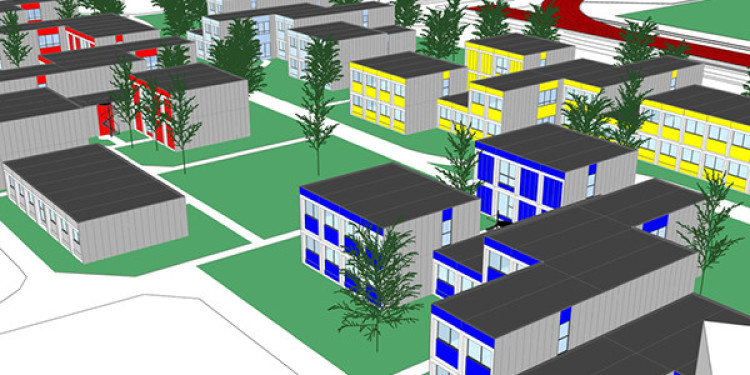VUB and VIB construct a bio-incubator in the former Willy Van Der Meeren buildings
The Vrije Universiteit Brussel (VUB) and VIB are partnering to build a bio-incubator on the VUB campus. To this end, they set up Bio Incubator Brussels bv. In this incubator, starting spin-offs will be able to develop during their first years in the close vicinity of research groups active in the life sciences.

VUB vice-rector Innovation and Valorisation Hugo Thienpont: “This dynamic self-supporting ecosystem of starting biotech companies will be able to use research infrastructure, core facilities, and pilot lines on our campus. In addition to providing logistics services, the bio-incubator will also offer programs for stimulating, guiding, and advising young entrepreneurs.”
VIB has a unique partnership with its partner universities, establishes new biotech companies based on scientific results and tech transfer know-how, and plays a unique role as a catalyst of the local biotech ecosystem. Supporting the vibrant biotech sector also means helping to provide the necessary infrastructure. VIB has been active in this area since the late 1990s and the institute has built up the expertise to enable new necessary projects.
VIB Chief Operating Officer Wim Goemaere: “As a partner in Bio Incubator Brussels, we will not only use our experience and expertise with incubators, but we will also participate in financing the project. This way we will guide and support the VUB in the development of the VUB incubator ecosystem. We are pleased that, together with the VUB, we can be a catalyst for entrepreneurship among young VUB talent and contribute to the further growth of the VUB biotech ecosystem.”
Bio-incubator construction timeline
The bio-incubator will be realized as part of the reconversion of the renowned red Willy Van Der Meeren student facilities. VUB is already fully engaged in the hull renovation of these buildings. The hull renovation is made possible in part by the contribution of funds from the “Ablynx fund (1)”.
Professor Jan Steyaert of the VIB-VUB Center for Structural Biology: “In this way, our research center reinvests income from successful spin-off activities in starting companies and contributes to future-oriented campus development. The growing VUB biotech ecosystem in which academic research and early-stage companies are (literally) very close to each other will also have a positive impact on our research and that of our colleagues.”
After that, the red buildings will be leased to Bio Incubator Brussels and from autumn onward, the company will start the refurbishment into incubator units with laboratory and office facilities. For example, 6 lab units of various sizes ranging from 70 to 200 m² will be provided on the ground floor, with shared facilities such as an entrance lobby, lab kitchen, waste port, and a social space to promote interaction between the companies. The offices and shared meeting rooms will be located on the first floor. The different units can function completely independently of each other but can also be flexibly connected if more space is required. At the beginning of 2024, the first two starters will move into the buildings.
This bio-incubator will eventually connect with a larger bio-incubator at the VUB Research Park in Zellik that VUB and VIB are planning. In this way, the starting companies can move on to adapted infrastructure in a broad innovative eco-system at a later stage.
RE-use of the Willy Van Der Meeren student facilities on VUB Main Campus
The famous modernist concrete student facilities by architect Willy Van Der Meeren on the VUB campus in Ixelles will be given a scientifically oriented repurposing. In addition to the VIB-VUB facility for Biological Cryo-Electron Microscopy (BECM) and the Circular Retrofit Lab, the unique demonstration lab for 'circular construction', there will now also be a bio-incubator. Also planned is a cleanroom for the development of new microfluidics and microreactor applications, a microbrewery, and a sourdough bakery.
The new interpretation of existing buildings fits in perfectly with the VUB core theme Re-Use, in which the VUB, as a socially responsible knowledge institution and urban engaged university, approaches its construction and research projects in an ecologically conscious manner.
(1) The Nanobody technology from Professor Raymond Hamers' lab formed the basis for the establishment of various biotech companies, including Ablynx. Funds derived from the input of this technology into this company, returned to VIB and the VUB to reinvest in research and research-related topics.
